The Global Terrorism Index 2024 report provides a comprehensive summary of the key global trends and patterns in terrorism over the last decade. The annual Global Terrorism Index, now in its eleventh year, is developed by leading international think tank the Institute of Economics and Peace (IEP) and provides the most comprehensive resource on global terrorism trends.
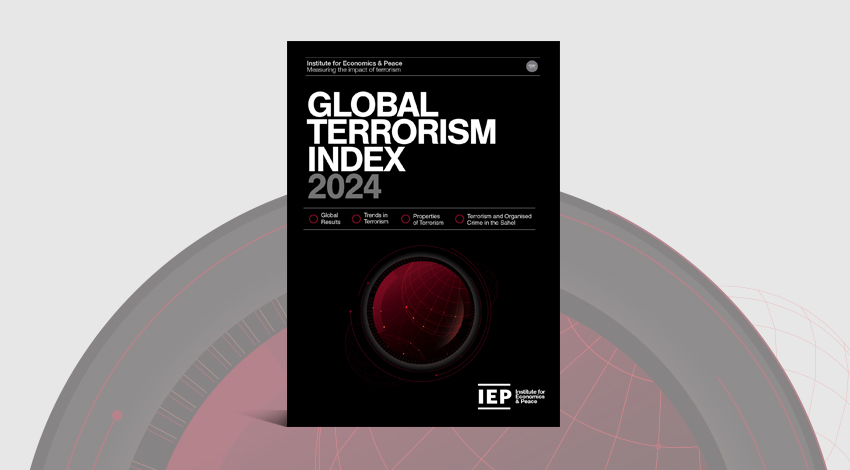
Here are some of the key findings from the Global Terrorism Index 2024.
The Global Terrorism Index 2024 (GTI) highlights that terrorism remains a serious global threat, with total deaths from terrorism increasing by 22% to 8,352 in 2023, now at their highest since 2017. Even when excluding the October 7th attacks, deaths would still have increased by 5%. This is despite terrorist incidents decreasing by 22% to 3,350, resulting in a 56% increase in the average number of people killed per attack. This is the worst rate in almost ten years.
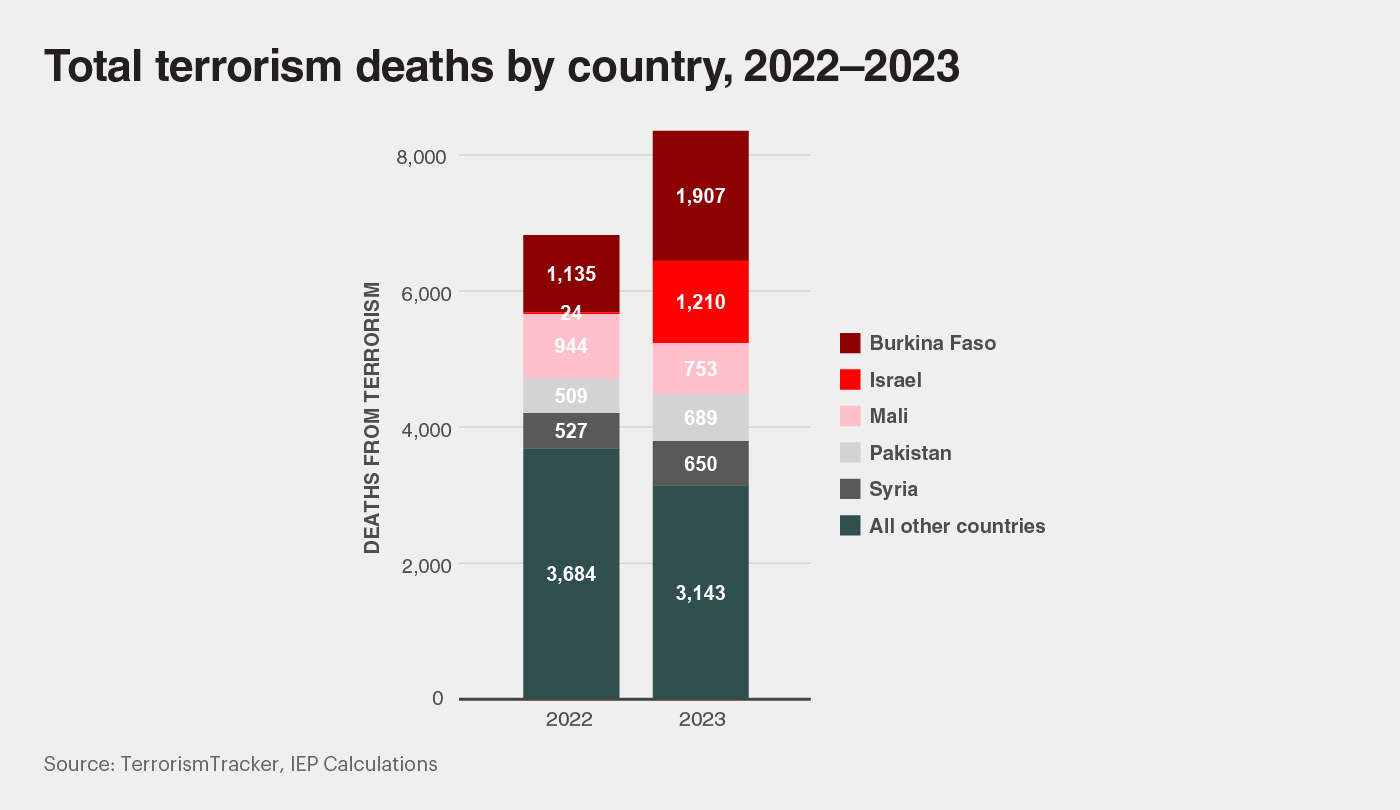
Terrorism incidents in Western democracies recorded a drop of 55% compared to the previous year. There were 23 attacks that resulted in 21 fatalities, marking a 15-year low. However, the US recorded 76% of these fatalities from seven attacks. Five of these attacks were linked to individuals with far-right beliefs yet none had an affiliation with a far-right group.
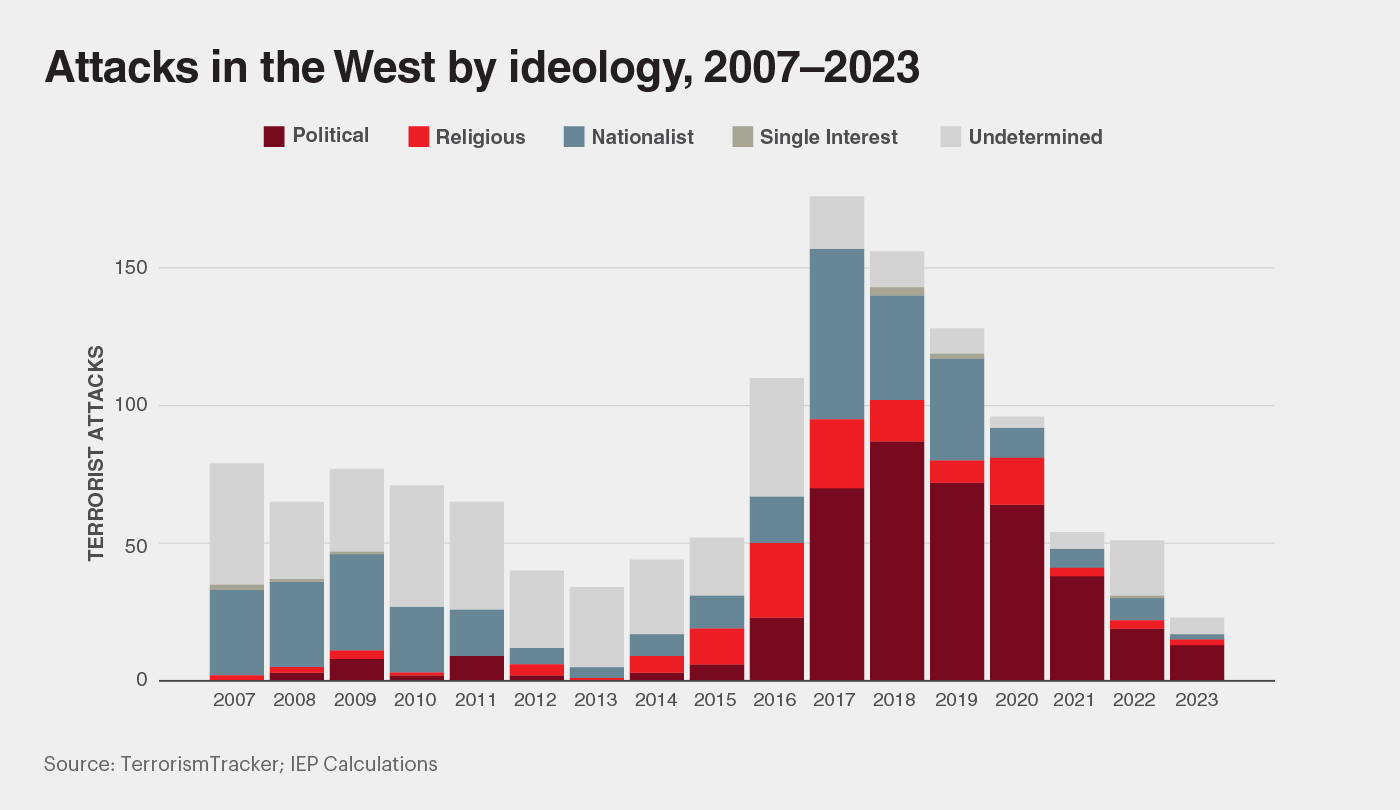
Despite the Hamas attacks of October 7th, the number of terrorist incidents fell in the Middle East, along with North Africa, Europe and North America. The central Sahel region has conclusively overtaken the Middle East as terrorism’s epicentre with Islamic State (IS) and Jamaat Nusrat Al-Islam wal Muslimeen (JNIM), a franchise of Al-Qaeda, being the most active terrorist organisations.
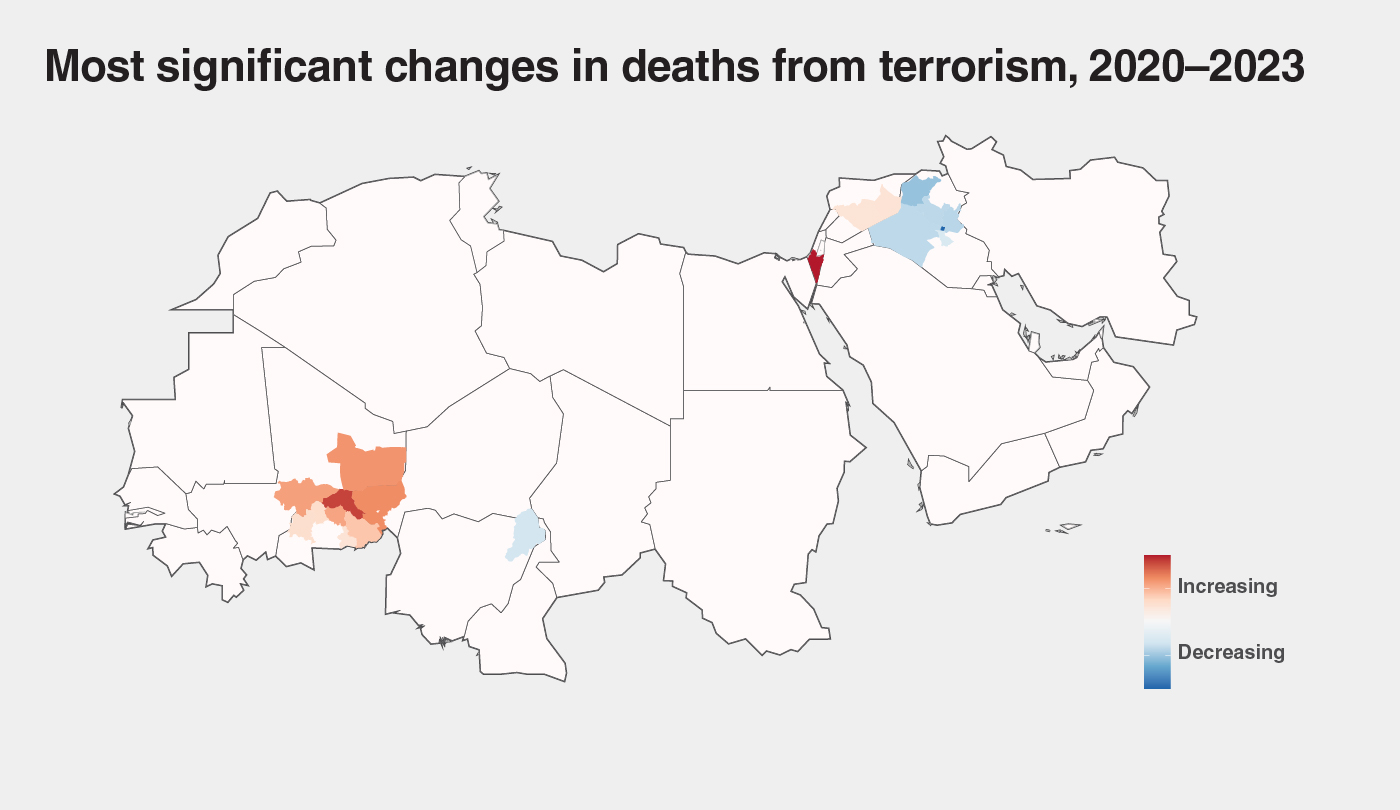
Burkina Faso suffered the worst impact from terrorism in 2023, with deaths increasing by 68% despite attacks decreasing by 17%. Terrorism in the country has deteriorated every year since 2014. Neighbouring Mali and Niger also deteriorated in 2023.
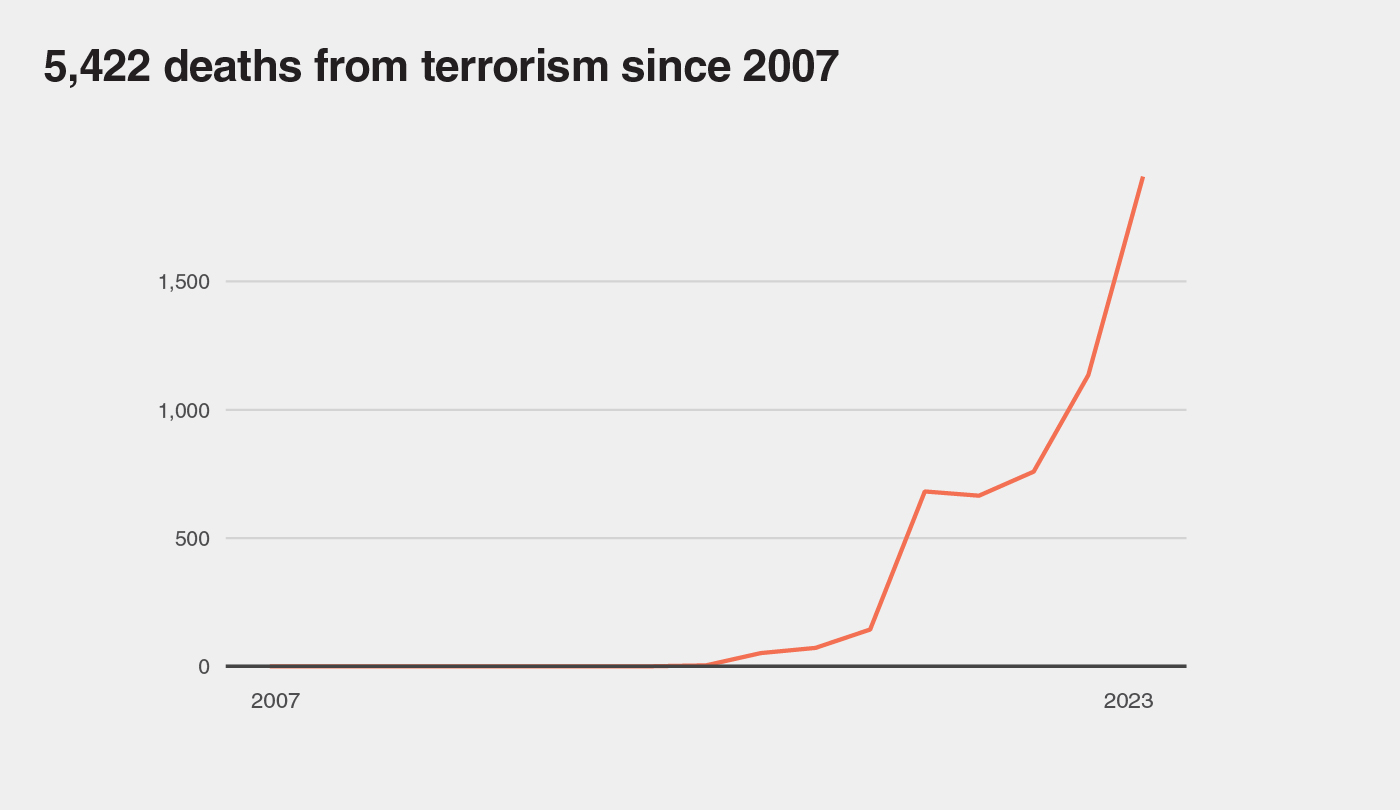
Terrorist activity remains highly concentrated in a small number of countries. Just ten countries accounted for 87 per cent of all terrorism deaths in 2023. This concentration of terrorist activity has intensified over the past decade, with the number of countries recording at least one death from terrorism falling from 57 in 2015 to 41 in 2023.
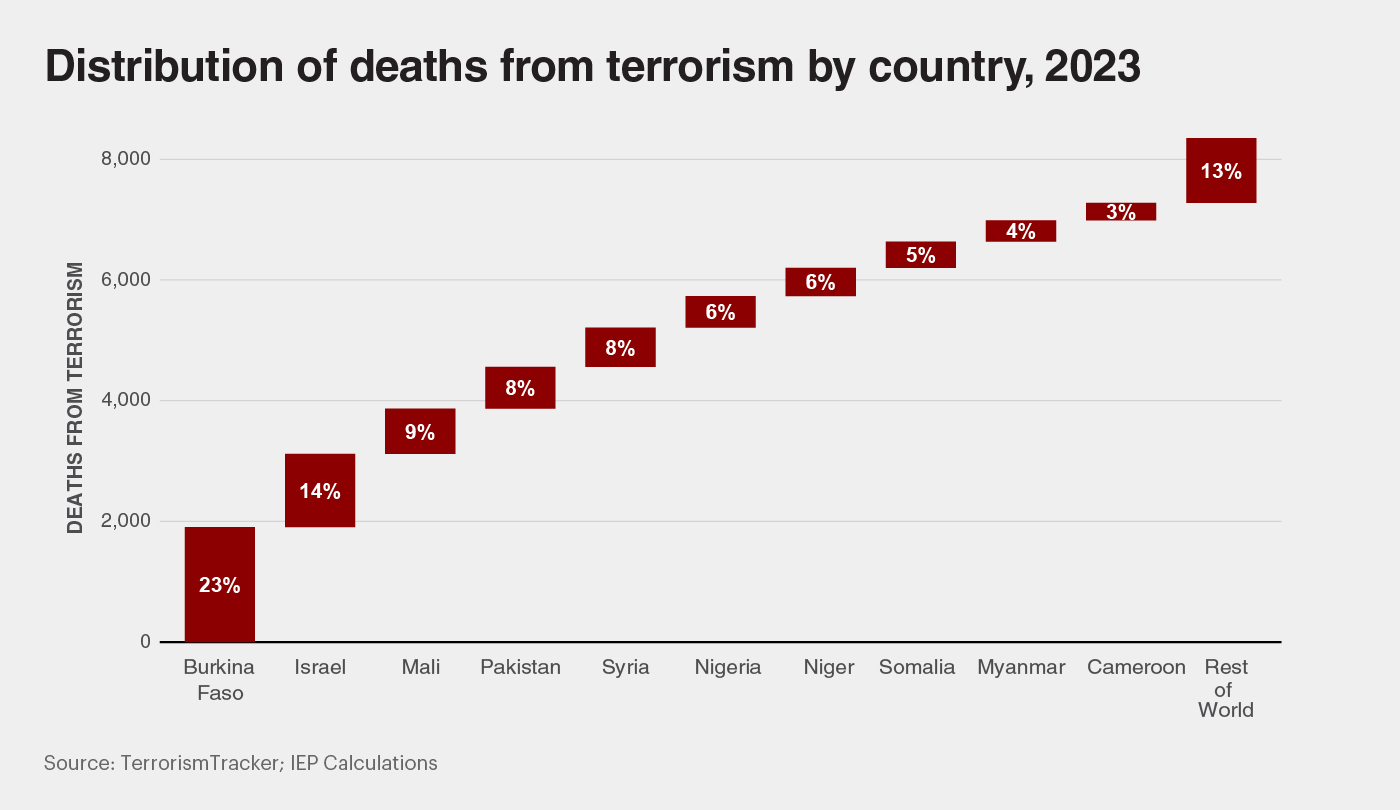
Violent conflict remains the primary driver of terrorism, with over 90% of attacks and 98% of terrorism deaths in 2023 taking place in countries in conflict. All ten countries most impacted by terrorism in 2022 were also involved in an armed conflict. The intensity of terrorism in conflict is also much higher than in non-conflict countries, with an average of 2.7 fatalities per attack compared to 0.48 fatalities.
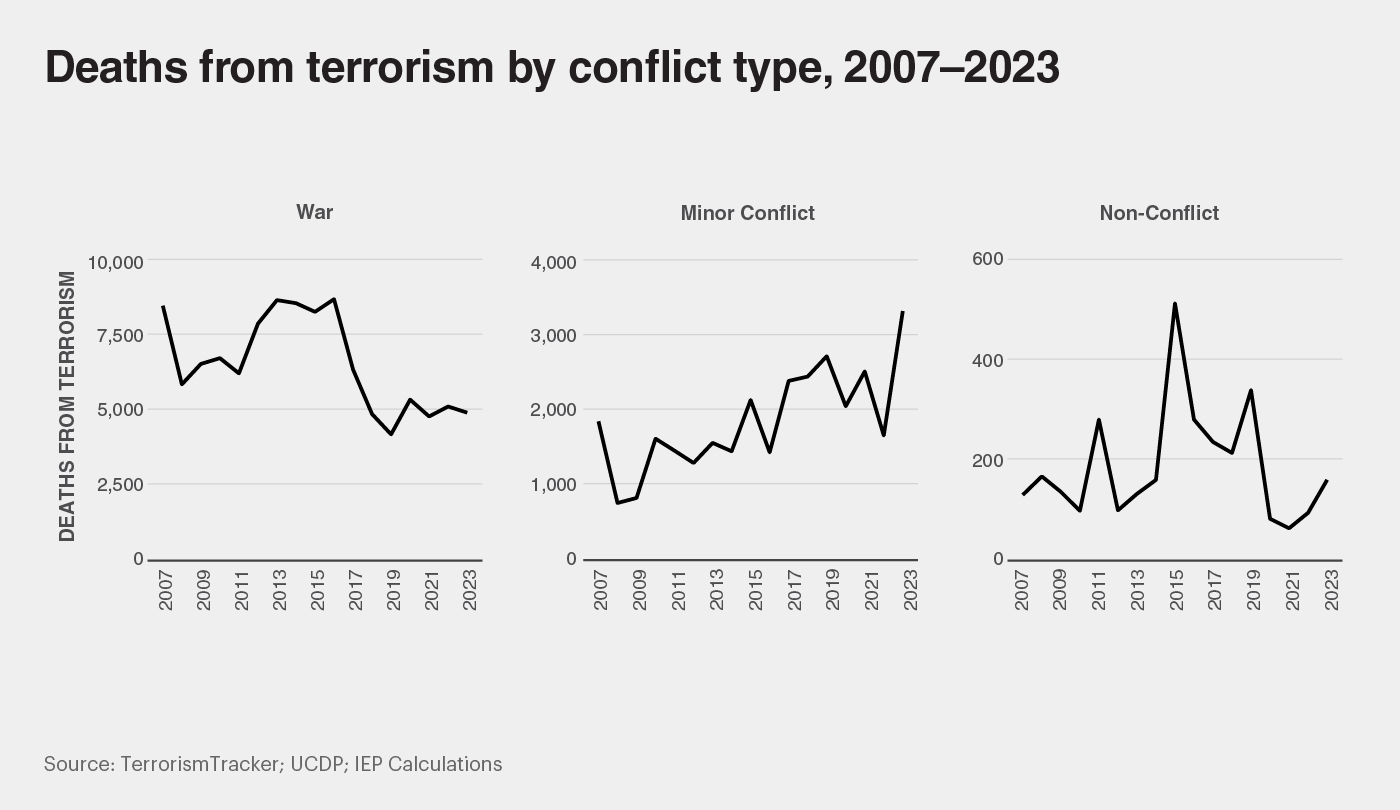
Iraq is no longer amongst the ten countries most impacted by terrorism, with total deaths falling 65% in the past year. Prior to 2023, Iraq had been ranked in the top ten every year since the inception of the Global Terrorism Index. Total deaths have fallen 99% since their peak in 2007, with incidents falling 90%.
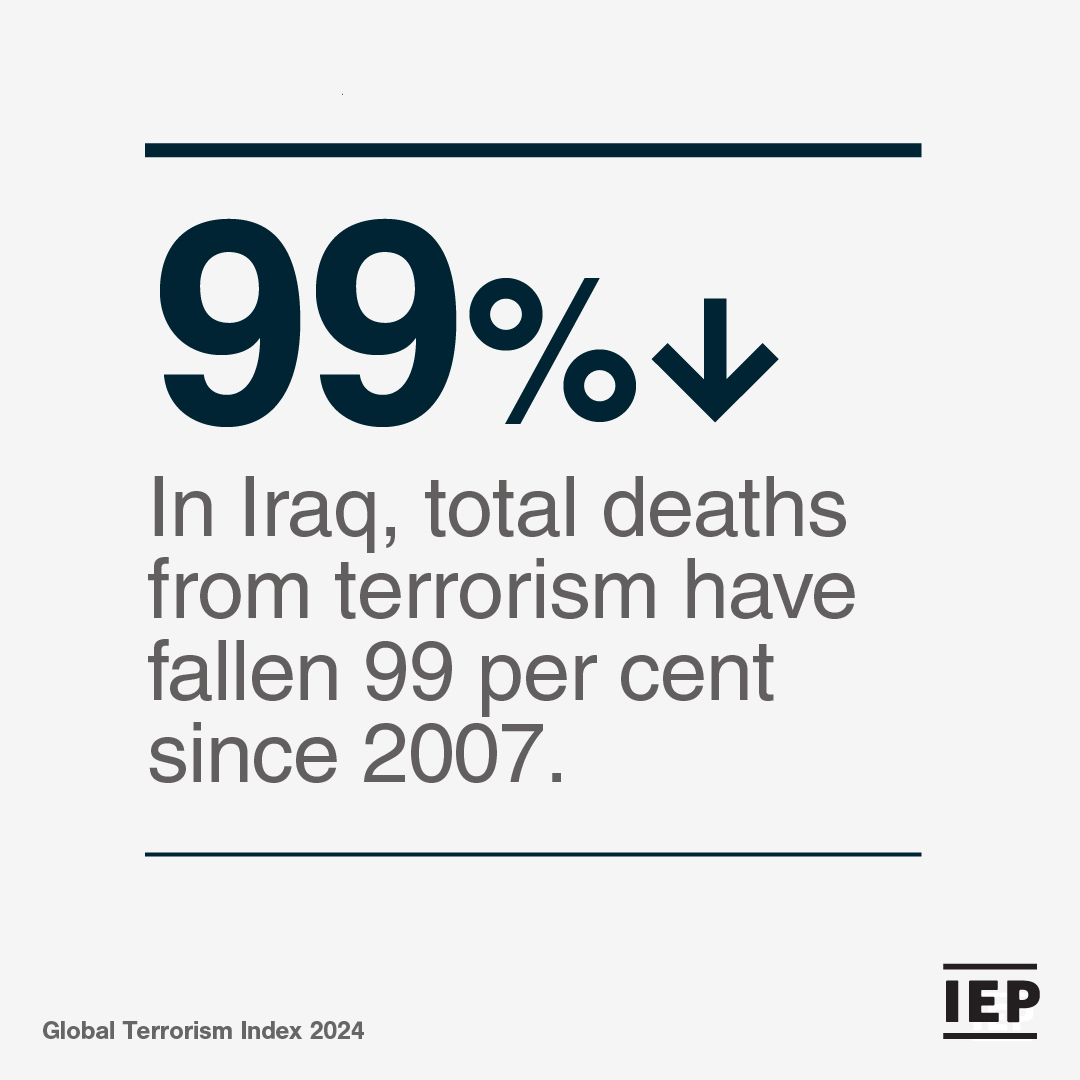
Download the Global Terrorism Index 2024 report here.
View the Global Terrorism Index Maps and investigate the data.